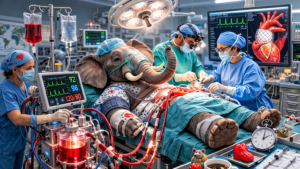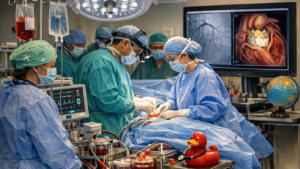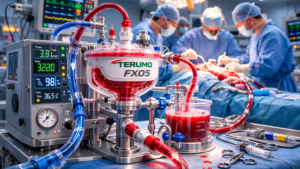Purpose of study: The COVID-19 pandemic has led to a significant increase in the use of veno-venous extracorporeal membrane oxygenation (V-V ECMO) as a bridge to transplantation versus recovery. Unlike other etiologies of acute respiratory distress syndrome (ARDS), utilization of V-V ECMO in COVID-19 has been associated with longer duration of ECMO support requirements. Our team sought to evaluate outcomes associated with prolonged duration of ECMO support in this patient population.
Methods: Single-center retrospective review of patients who were placed on ECMO due to COVID-19 associated ARDS. Specifically examining outcomes-transplant free survival, mortality and discharge rates-of patients requiring V-V ECMO support for greater than 50 days.
Results: The median age of the cohort was 48 years and 13 patients (72%) were males. The median duration of ECMO support was 84 days (IQR 55-106). 11 patients (61%) had right ventricular dysfunction and 13 patients (72%) had pneumothoraces. There was a 33% percent (n = 6) mortality rate within cohort. One patient continues to require ECMO support at time of abstract submission. 11 patients (61%) patients were discharged, of which 3 patients required a lung transplant.
Summary: Prolonged V-V ECMO can be associated with comparable outcomes to conventional V-V ECMO runs that are relatively shorter in duration. With availability of device and staffing, prolonged ECMO runs can potentially be justified in a highly selected patient population.
Keywords: ARDS (MESH); COVID-19; ECMO; Transplant; survival.







